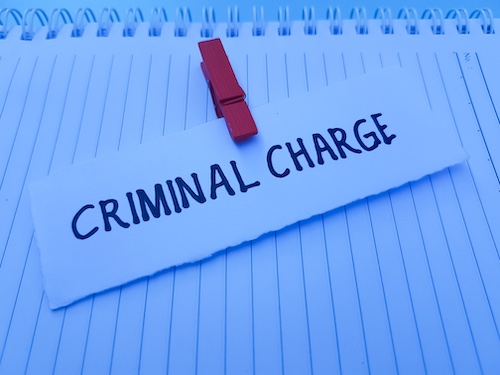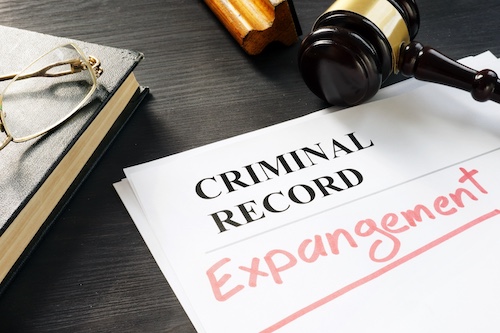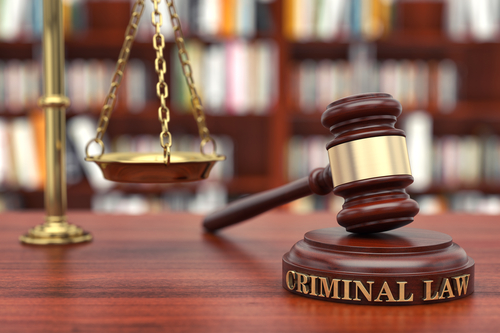Criminal Charges Dropped Before Trial in Nashville
We are Byron Pugh Legal, a law firm in Nashville that focuses exclusively on criminal defense. We defend clients against misdemeanor and felony charges, violent crime, DUI, drug offenses, and serious allegations. We analyze every case in detail, challenge the prosecution’s evidence, file motions when necessary, and negotiate strongly on your behalf. Our team works to have criminal charges dropped or reduced, to avoid convictions, and to protect your record.
Facing a criminal charge can be overwhelming, but many people do not realize that some cases end before reaching trial. In Nashville, criminal charges can be dropped when the prosecution lacks sufficient evidence, commits procedural errors, or recognizes constitutional violations.
A skilled Nashville criminal defense lawyer can identify weaknesses in the prosecution’s case, gather exculpatory evidence, and use Tennessee law to seek dismissal. Understanding how and why criminal charges are dropped before trial can make the difference between a lasting conviction and a clean record.
Legal Authority & Tennessee Statutes
Tennessee law allows certain criminal charges to be dropped before trial under specific legal rules. These laws define when the prosecution or the court can end a criminal case early. Understanding these statutes helps a defendant and their Nashville criminal defense lawyer identify the best strategy for a favorable outcome.
Rule 48 of the Tennessee Rules of Criminal Procedure
Rule 48 gives the prosecutor authority to dismiss or drop criminal charges. The prosecution may end a case if there is insufficient evidence, a procedural error, or a plea deal. This action is called nolle prosequi, meaning the State decides not to pursue the case further. Once a court approves the dismissal, the defendant is released from that criminal charge unless it is later refiled.
Tennessee Code Annotated § 40-32-101 – Expungement After Dismissal
When criminal charges are dropped or dismissed, a defendant may qualify to have their record cleared. Under Tennessee Code Annotated § 40-32-101, a person can request expungement if the case ended without a conviction. Expungement removes the case from public records, helping the defendant avoid lasting damage to their criminal record. A Nashville criminal defense attorney can help ensure the expungement request meets all legal requirements.
Statute of Limitations in Criminal Cases
The statute of limitations limits how long prosecutors have to file criminal charges. Under Tennessee law, the State must file charges within a specific time based on the alleged offense. If prosecutors fail to act in time, a skilled defense attorney can move to have the case dismissed. This protection ensures the prosecution cannot pursue charges indefinitely without sufficient evidence.
Rule 12 Motions and Procedural Defenses
Rule 12 of the Tennessee Rules of Criminal Procedure allows a defense lawyer to file pretrial motions to challenge the prosecution’s case. These motions may argue that the police reports were inaccurate, evidence was gathered through unlawful searches, or the indictment was defective. If the court agrees, the judge may suppress evidence or drop the charges entirely. This rule protects a defendant’s constitutional rights and holds the prosecution to a strict legal process.
When & Why Charges Are Dropped Before Trial
Criminal charges can be dropped before trial for several legal and factual reasons. These reasons usually involve weaknesses in the prosecution’s case, constitutional violations, or new evidence that creates reasonable doubt. A Nashville criminal defense lawyer can identify these issues early to help get the charges dropped.
Insufficient or Weak Evidence
Prosecutors must have enough evidence to prove a criminal offense beyond a reasonable doubt. If there is insufficient evidence, they may decide to drop the charges. Missing or unreliable witness statements, inaccurate police reports, or a lack of forensic proof can all weaken the prosecution’s case. A defense attorney can highlight these gaps to show the State cannot meet its burden of proof.
Exculpatory or New Evidence
Exculpatory evidence is information that helps prove a defendant’s innocence. When new evidence shows the accused did not commit the alleged crime, the prosecutor may withdraw the case. Examples include video footage that contradicts police reports or DNA results that clear the defendant. A skilled defense attorney gathers and presents this evidence to convince the prosecution to drop charges.
Constitutional or Procedural Violations
Charges can be dropped if law enforcement or prosecutors violate constitutional rights. Evidence collected through illegal searches, invalid search warrants, or Fourth Amendment violations may be deemed inadmissible. If crucial evidence is suppressed, the prosecution may lose the ability to proceed. Procedural errors, such as failure to file proper indictments or missed court deadlines, can also result in charges being dismissed.
Successful Pretrial Motions
A defense lawyer can file pretrial motions to suppress evidence or dismiss charges. If the court finds that evidence was unlawfully obtained or that the prosecution’s case lacks probable cause, the judge may dismiss the charges before trial. These motions are often based on detailed analysis of police conduct and the legality of evidence collection.
Plea Negotiations and Prosecutorial Discretion
Sometimes a prosecutor drops certain charges during plea negotiations. This may happen when the defendant pleads guilty to a lesser offense or agrees to a diversion program such as drug treatment or community service. This use of prosecutorial discretion allows the State to secure a conviction on minor crimes while avoiding a jury trial on more serious allegations.
Statute of Limitations Expiration
If prosecutors file charges after the legal deadline, the defense can move for dismissal. Under state law, criminal charges must be filed within a set period depending on the alleged offense. Once that time expires, the prosecution loses the right to pursue charges.
Advantages & Risks of Dropping Charges Before Trial
Having criminal charges dropped before trial can bring major benefits, but it also carries some risks. Understanding both sides helps a defendant make informed decisions with the guidance of a Nashville criminal defense lawyer.
Advantages of Dropping Charges
When criminal charges are dropped, the defendant avoids a trial and the risk of conviction. This outcome prevents a criminal record and reduces the long-term impact on employment, housing, and reputation. It also saves time, money, and emotional stress connected to court appearances and legal fees.
A dropped case can also open the door to expungement. Under Tennessee Code Annotated § 40-32-101, a person whose charges were dismissed or dropped may request to have their record cleared. Expungement removes the case from public view, giving the defendant a clean start. A Nashville criminal defense attorney can prepare and file the petition to ensure the process is handled correctly.
Dropping charges can also encourage rehabilitation or alternative resolutions. Defendants may be offered diversion programs, community service, or counseling instead of prosecution. These options often lead to a complete dismissal of the case once conditions are met, resulting in a more favorable outcome.
Risks of Dropping Charges
Even when charges are dropped, the case may not be over. Some dismissals are “without prejudice,” meaning the prosecutor can refile charges if new evidence appears or the statute of limitations has not expired. A defense lawyer must confirm whether the dismissal prevents the State from reopening the case.
In some cases, the dismissal does not automatically remove the charge from a defendant’s record. The individual must request expungement through the court. Without it, the arrest and case may still appear in background checks. A Nashville criminal defense lawyer can file the correct paperwork and ensure the record is properly cleared.
A defendant may also face conditions tied to the dismissal, such as restitution or participation in a diversion program. Failure to meet these terms could cause the prosecutor to pursue the charges again. For that reason, legal guidance is essential even after charges are dropped.
Role of a Nashville Criminal Defense Attorney in Getting Charges Dropped
A strong Nashville criminal defense attorney plays a key role in persuading prosecutors or courts to drop criminal charges before trial.
Early Case Assessment
From the start, the attorney reviews all available materials. They examine police reports, witness statements, lab results, and search warrants. They check for gaps in the prosecution’s evidence or procedural defects. Early detection of these flaws lays the groundwork for motions or negotiations.
Filing Pretrial Motions
The attorney can file motions to suppress evidence or to dismiss. They argue that a search was illegal, evidence is inadmissible, or the charging instrument is defective. If a judge grants the motion, crucial evidence may be thrown out or the charges dropped entirely.
Negotiation & Prosecutor Communication
A defense attorney can engage the district attorney’s office to propose dropping weaker counts or dismissing the case in exchange for cooperation or an alternative resolution. They present risk assessments, highlight insufficient evidence, or point out constitutional issues to persuade the prosecution to drop charges.
Gathering & Presenting New Evidence
The attorney may uncover exculpatory evidence, such as surveillance footage, alibi witnesses, or forensic tests. They present this evidence to the prosecutor to weaken the case. If successful, the State may drop the charges to avoid a trial defeat.
Monitoring Deadlines & Procedural Strategy
The attorney ensures all procedural deadlines are met. They avoid waiver of rights and preserve every legal defense. Missing a deadline could undermine a motion that might otherwise lead to dropped charges.
Post-Drop Actions & Record Cleanup
Once charges are dropped, the attorney files appropriate paperwork to seek expungement. They monitor court and TBI records to ensure the case is removed from public view. They also confirm that the dismissal is entered “with prejudice” where possible, so the State cannot refile.
Byron Pugh Legal emphasizes thorough case analysis, aggressive motion practice, and strategic negotiation to protect clients facing criminal charges in Nashville.
Contact Our Team at Byron Pugh Legal Today!
If you are facing criminal charges in Nashville, do not wait to protect your rights. Our team at Byron Pugh Legal is ready to review your case, identify weaknesses in the prosecution’s evidence, and fight to have your criminal charges dropped before trial. A prompt and focused defense can make the difference between a conviction and freedom.
Contact us at 615-255-9595 for a free case consultation today!









